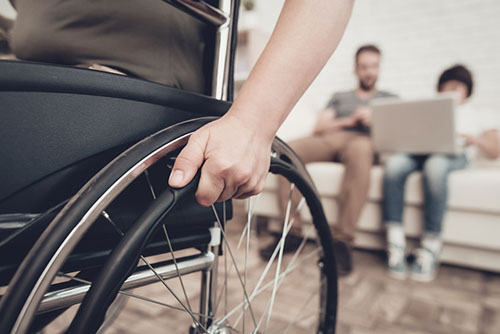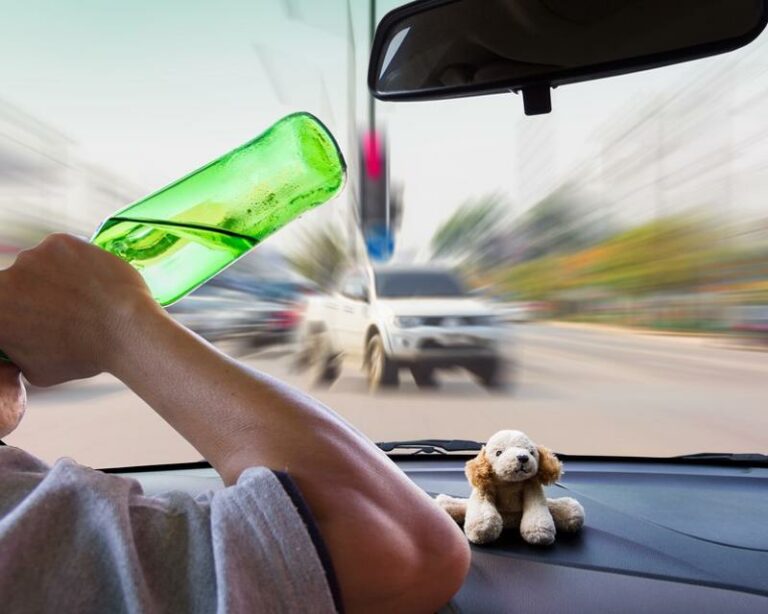When it comes to recovering compensation after an Indiana auto accident, there are multiple facts and myths that you need to be aware of. Having the facts will ensure that you know what to do and how everything works. Dispelling the myths will ensure that you don’t make the most common mistakes that victims of auto accidents frequently make. Today, we’ll take a look at both, so that you can be in the best position after an auto accident occurs.
Fact: The Immediate Steps After an Auto Accident Are the Same Everywhere
No matter what town, city or state, your auto accident occurs in, you must follow the same steps in the immediate aftermath. This means checking everyone for injuries, getting the vehicles out of the line of traffic, if possible, contacting the police and emergency medical care, exchanging insurance information, and gathering evidence. You should not move someone who is injured unless it is absolutely necessary because their life will be in danger if you don’t. When gathering evidence, take photographs of all injuries, of the property damage and vehicle position, and any relevant road conditions or signs. You should also gather the contact information of any witnesses, and get a copy of the police report.
Fact: Indiana Auto Accidents Are Subject to a Modified Comparative Fault Rule
Not all states have the same rules concerning legal liability for auto accident damages. In Indiana, the modified comparative negligence rule is used. This means that if you are 51% at fault for the accident, or greater, then you cannot recover compensation for your damages. However, if you are less than 51% at fault, then you can recover compensation for your damages with your percentage of fault deducted from the value of those damages. Thus, if you have $1,000 in damages, but you are 30% at fault, then you can recover 70% of your damages, or $700.
Fact: All Indiana, Drivers Are Required to Carry Liability Coverage
Because Indiana is an at-fault state when it comes to auto insurance and accident claims, you are required to carry liability coverage on your auto insurance policy. The required minimums of liability coverage are $25,000 for bodily injury or death per person, $50,000 for bodily injury or death per accident, and $10,000 for property damage per accident. You can also purchase uninsured/underinsured motorist coverage, which will be there for you if the at-fault driver doesn’t have auto insurance or doesn’t have adequate coverage for your damages. It is also important to have medical payments coverage that can help pay your medical bills from an accident. This coverage is usually very cheap and you should maximize it as much as you can. Make sure you talk to your insurance agent about the costs of raising your limits for both liability and uninsured/underinsured coverage to protect yourself in an accident. You will be surprised how little it may cost to raise your coverages. So many drivers on the road have no or little coverage and that is why it is so important to have high uninsured/underinsured coverages.
Fact: Most Indiana Auto Accident Claims Are Resolved via Settlement
While some auto accident claims will end up in front of a jury, the majority will be settled outside of the courtroom. This is because lawsuits are expensive for both sides, and the auto insurance company is just as motivated to save the time and money as you are by settling the claim out of court. Having said that, the auto insurance company may not offer a fair settlement right away, and they are more likely to take your claim seriously once you have an attorney negotiating for your best interests. If a lawsuit is filed, it does not mean that the case will necessarily be heard by a jury. The court orders mediation before a jury trial and many cases are settled in the mediation process.
These facts will get you started in the right direction, but it is equally important to dispel the common myths that could prevent you from successfully obtaining a fair auto accident claim settlement.
Myth: You Have Plenty of Time to Pursue Your Indiana Auto Accident Claim
The mistake of not realizing that there is a time limit for pursuing an auto accident claim in Indiana, could prevent you from recovering any compensation at all. It is therefore important to be aware of the statute of limitations, which is your deadline for filing a personal injury claim. In Indiana, the statute of limitations on all personal injury claims, including auto accidents, is two years from the date of the incident, injury, or death of the auto accident victim. If you fail to file your claim within this period of time, you will not be able to pursue a claim at all.
Myth: The Auto Insurance Company is There to Help You Get Fair Compensation
It is understandable why so many people fall for the common misconception that the auto insurance company is on their side. The auto insurance claims adjuster will likely contact you soon after the injury. They will speak to you with respect, consideration, and empathy. They will tell you what your injuries and damages are worth and offer what sounds like a reasonable settlement. Unfortunately, if you fall for this and sign off a settlement agreement, there is nothing you can do to go back on it later. There is also a very good chance that you’ll regret it when you find out that your actual medical expenses, lost wages, property damage, and pain and suffering were worth much more than you realized. We recommend that you avoid signing anything or even discussing the claim with the insurance claims adjuster without first talking to an Indiana auto accident attorney.
Myth: It Costs Too Much to Hire an Auto Accident Attorney to Help With Your Claim
Another very common myth is that you cannot afford an auto accident attorney because it costs too much. The reality is that the majority of Indiana auto accident attorneys work on a contingency fee basis, meaning that they don’t get paid unless they help you to recover compensation. Then, the lawyer takes their fee from the settlement or favorable judgment (if the case goes to court). Even after the attorney takes their fee, you are still likely to end up with far more compensation with the benefit of legal representation than you would without an attorney.
In many cases, the auto insurance company will not take you seriously until they see that you have skilled legal representation. Further, your attorney will ensure that you don’t miss any deadlines, that all necessary evidence is collected, and that your case is handled appropriately every step of the way. Learn more about how a lawyer can help you get fair compensation after an auto accident by contacting the skilled Indiana auto accident attorneys at Rowe & Hamilton Attorneys at Law.





